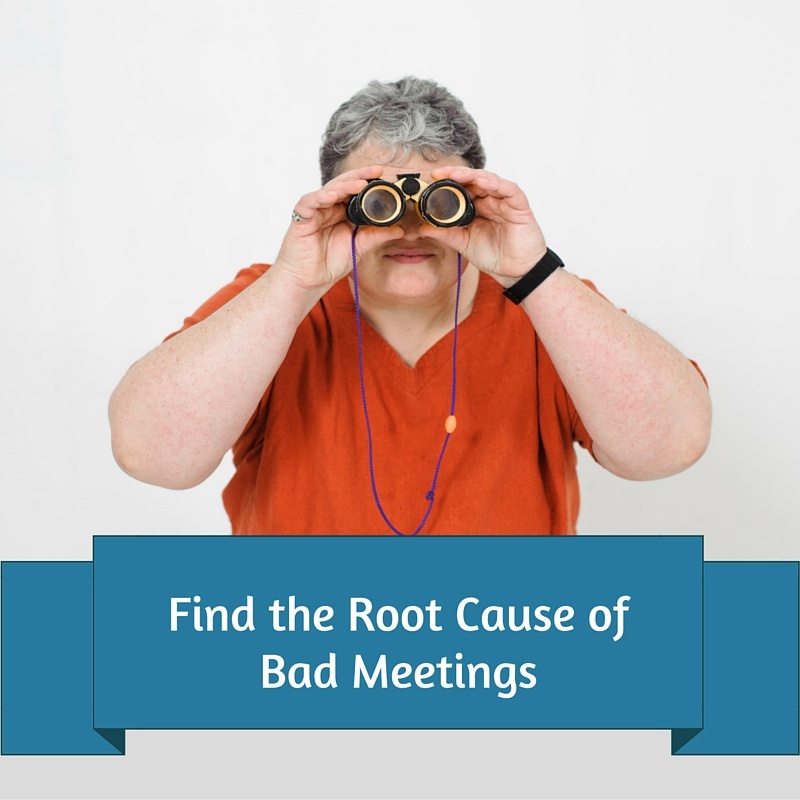The Root Cause of Boring, Unproductive Meetings

Imagine yourself sitting in yet another mind numbing, time-wasting meeting. And then imagine that instead of thinking about all the other things you have to do when the meeting finally ends, you ask yourself “How did we get into this situation?”
Bad meetings do not just happen. They are not a curse cast upon all who dare to try to work together in groups. The root cause of boring, unproductive meetings is that those responsible for calling a meeting make this mistake: we schedule the session and then fail to plan how the group’s time will be used.
Here are some examples of convening but not planning a meeting:
- Calling a meeting on a pre-established day and time without questioning the need or purpose for bringing the group together.
- Inviting the same people to every meeting, regardless of the topics on the agenda.
- Making a “laundry list” of topics and calling it an agenda.
- Failing to share even this haphazard list with the invited participants in advance of the meeting.
- Not considering whether the items on the agenda are relevant to everyone on the invitation list.
- Not assigning specific time limits for each agenda item.
- Not defining an expected outcome for each agenda item.
These common practices result in meetings that are boring, pointless, and a colossal waste of time and resources. So why are they so widespread?
A typical response from the overworked meeting convener is, “I do not have time to plan meetings. The best I can do is bring the group together and hope that we will be able to sort things out as we go.”
As someone who convenes meetings myself, I recognize that time pressure is a real constraint. I also suspect that many of these intelligent, well-meaning colleagues fail to plan effective meetings because they do not know how.
Do you have the skills you need to effectively plan a meeting?
No one ever taught them that productive meetings must include effective planning of how the group’s time will be used. Conveners have not been given the tools they need to be able to:
- Define the purpose of each meeting.
- Invite only those who can make a useful contribution to the conversation.
- Prioritize the issues under discussion.
- Design processes that will give everyone present the satisfaction of having contributed to a useful outcome.
- Engage others on the team in the planning process.
Training Opportunity
Basic meeting skills are an essential part of professional development. Anyone who needs to communicate and collaborate with others should know how to plan and facilitate meetings that inspire and lead to effective action. Fortunately these skills can be learned. And I am ready to help.
The time invested in planning meetings can be rewarded with shorter, more productive meetings, greater participant satisfaction – and perhaps even fewer meetings!
Ready to learn the elements of how to convene effective meetings now? The online course, 3 Keys to Planning Excellent Meetings starts on October 13 2015. This course takes a systems approach to understanding the dynamics of a successful meeting and how to match the process to the desired results. The concepts presented are foundational to transforming the meeting culture to achieve fruitful collaboration.
Learn more about the 3 Keys to Planning Excellent Meetings here.
Want More? Learn How to Get Hired as a Facilitator!
Are you a professional meeting facilitator or are you thinking of becoming one? If you are, check out Beatrice Brigg’s Meeting School course.



